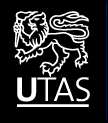Phoronidae
Hatschek 1888
Taxonomy
| Phylum | Phoronida |
| Family | Phoronidae |
| Genus | Phoronis |
Size
- 0.6 mm to over 2.5 mm.
Description
- One of the two genera of the horseshoe worm family (Phoronidae), Actinotrocha larva are one of the largest marine larval forms.
Distinguishing characteristics
- Bullet-shaped.
- Anterior umbrella-like body region (pre-oral hood).
- Middle body region is the collar.
- Ring of tentacles along posterior boundary.
- U-shaped digestive tract - the gut loops and ends close to the mouth instead of passing straight through the body.
- Soft body.
Distribution
- Found in most oceans and seas globally, except for polar seas.
- Phoronids are mainly found from 0 to 70 m depth.
Ecology
- Metamorphosis is rapid and unique, lasts 15-30 minutes and leads to the slender actinotroch larva form (Larink and Westheide 2006).
- Several to many weeks feeding in plankton (Johnson and Zimmer 2002).

